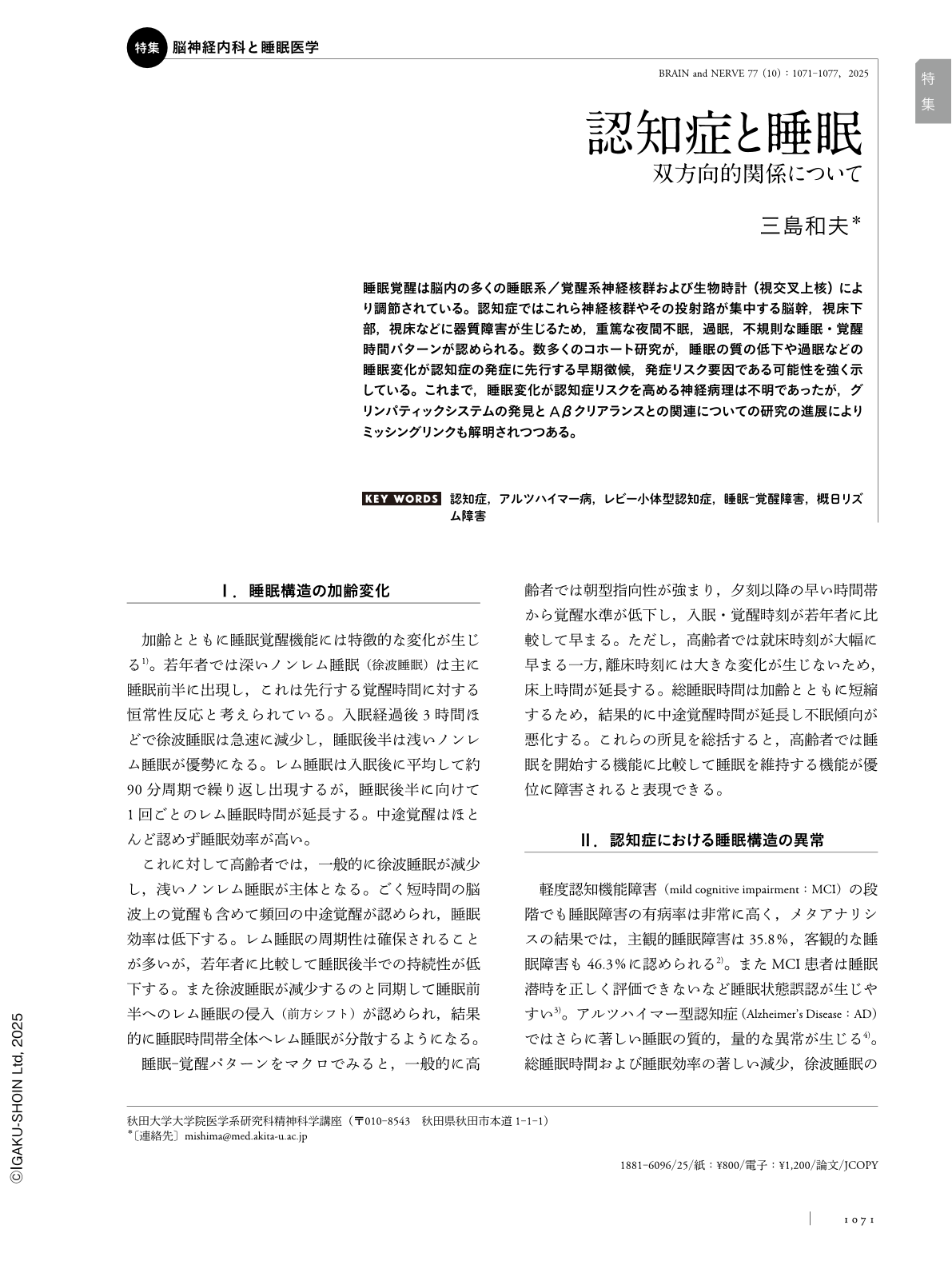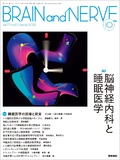Japanese
English
- 有料閲覧
- Abstract 文献概要
- 1ページ目 Look Inside
- 参考文献 Reference
睡眠覚醒は脳内の多くの睡眠系/覚醒系神経核群および生物時計(視交叉上核)により調節されている。認知症ではこれら神経核群やその投射路が集中する脳幹,視床下部,視床などに器質障害が生じるため,重篤な夜間不眠,過眠,不規則な睡眠・覚醒時間パターンが認められる。数多くのコホート研究が,睡眠の質の低下や過眠などの睡眠変化が認知症の発症に先行する早期徴候,発症リスク要因である可能性を強く示している。これまで,睡眠変化が認知症リスクを高める神経病理は不明であったが,グリンパティックシステムの発見とAβクリアランスとの関連についての研究の進展によりミッシングリンクも解明されつつある。
Abstract
Sleep-waking is regulated by numerous sleep- and wake-promoting nuclei in the brain and biological clocks (suprachiasmatic nucleus). In dementia, organic damage occurs in the brainstem, hypothalamus, and thalamus, where these nuclei and their neural projections are concentrated, resulting in severe insomnia, hypersomnia, and irregular sleep-wake patterns. Numerous cohort studies have strongly suggested that sleep disturbances, such as impaired sleep quality and hypersomnia, may serve as early indicators or risk factors for the onset of dementia. Until recently, the neuropathological mechanisms underlying the association between sleep disturbance and the risk of dementia remained unclear. However, recent advances in research on the glymphatic system and its association with amyloid-beta peptide clearance have begun to elucidate this missing link.

Copyright © 2025, Igaku-Shoin Ltd. All rights reserved.


